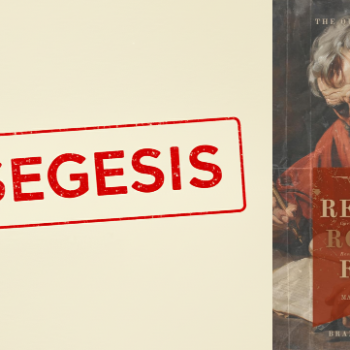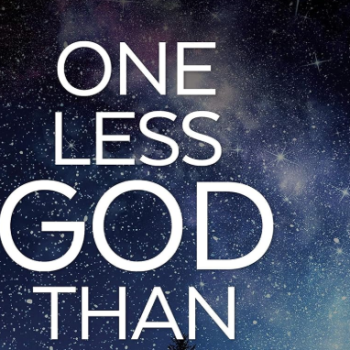Guest writer: Eric Luppold.
Introduction
When it comes to ultimate authority, the church does not “define” a theological truth, as if it were the source of that truth. It is the recipient of truth. Its job as a pillar of the truth (1 Timothy 3:15) is to obey and proclaim the gospel faithfully. To do this it must receive and interpret God’s message. But this is true for all communication, which involves a speaker, a message, and a receiver. The receiver’s job is to accurately interpret the speaker’s message. Even a single text-message requires interpretation. In the case of Scripture, the question is not whether interpretation is required but whether we will allow God to speak for himself.
Defining the Church?
In this debate, Dennis seems to use the word ‘church’ to refer to the Roman Catholic Church as it is currently structured. This is a something that I disagree with, and I would argue that the definition of the church must be defined by Scripture, not by imposing the modern structure onto the ancient text. When we let Scripture define the church, we find a body of believers that is organized at the local level, led by a plurality of elders who are in submission to God’s word.
Councils, Creeds, and Confessions
Regarding councils, they can help mediate conflict and resolve debates (as one man helps to sharpen another). But God’s word remains the final authority in which and by which this is accomplished. The Council of Jerusalem was called to bring peace and unity between Gentile and Jewish believers. Its decision was the result of a theological truth that already existed. The reason why circumcision was no longer needed was because Christ inaugurated the New Covenant, not because the Jerusalem Council said so. In other words, the council did not cause the Old Covenant to become obsolete. Christ did. The council simply recognized a theological truth that already existed and applied it to a specific situation.
What Gives a Council Authority?
If we give councils preeminence over Scripture, we end up in a conundrum. For example, the Council of Ariminum in 359 AD was attended by over 400 bishops and adopted the Arian position. Why was that council invalid? Dennis might argue that the church does not recognize that council as ecumenical. But he has the luxury of looking back on history. How could a Christian living in 360 AD know that the Council of Ariminum was wrong? And, when the next council met in 362 AD., what standard did they use to overturn the previous council? God’s revealed word.
Like Arius, many people twist Scripture. But this is nothing new. For example, when Jesus responded to Satan with Scripture, Satan used Scripture (Psalm 91) against Jesus. Did Jesus throw up his hands in frustration? Was he at an impasse until a council could be called? Not at all. Jesus responded to Satan’s twisting of Scripture by properly using Scripture against him.
Now, while Scripture is the final authority, councils, creeds, and confessions do have authority insofar as they rightly conform to Scripture. While Dennis would accuse Protestants of defining doctrine bottom-up, the position of Sola Scriptura is the ultimate top-down position. Since doctrine comes from God himself through his word, the Protestant holds to a more accurate hierarchical structure than the Catholic. For the Protestant, God’s word is at the top. For the Catholic, man’s word (the word of the Magisterium) is at the top. In this way, Catholics have traded divine truth for man-made certainty.
The Problem of Certainty
But even Dennis’s position does not solve the problem of certainty. For how does he know if the Magisterium got it right? What decision-making process did it use and how could he ever discern whether it made a mistake?
To be clear, I firmly believe in the authority of the church and in apostolic succession. But Dennis and I disagree on what those things mean and what they look like. True apostolic succession involves teaching what the apostles taught as they spoke from God. That is why we cannot receive a gospel that is contrary to the one we have already received (Galatians 1:8-9).
Tyranny vs. Legitimacy
God’s word sets the boundaries and defines terms. That has always been the case. That was true with creation, when God spoke the waters into existence and set their limits (Job 38:8-11). The same is true concerning earthly authorities. The standard of discerning a tyrant from a legitimate authority is God’s word. God is the one who grants authority. If that authority is being wielded as God instructs, then it is legitimate. If not, it is tyrannical.
The goal of legitimate authority (i.e., the corporate) is to correct the individual using an objective standard. When that is done, the individual should humbly receive correction. But the corporate should not think of itself as infallible. It should be willing to listen to those individuals who seek to correct it by the word of God. In either case, the tool of correction is Scripture, which is the authority over both the individual and the corporate.
A legitimate authority is one that is in submission to the authority of God’s word. But when an authority would equate itself with God or declare itself to have the divine trait of infallibility, it ought to be rejected.
Conclusion
At the end of the day, I am part of the true church, that ancient tradition that teaches what the apostles taught. It is the modern Roman Catholic Church that has deviated from what God has spoken by twisting the word of God and by adding non-apostolic traditions as dogmas.
Ironically, even Catholics today disagree on how to interpret and apply Scripture. So, if the goal is to get everyone to agree, that is something that can only be done by the power of the Holy Spirit, which uses the word of God to pierce a person’s innermost being (Hebrews 4:12). For when people truly treat God’s word as the final infallible rule of faith, they will experience genuine unity, a unity formed by sanctification through the word of truth (John 17:17).
Thank you!
Read The Latin Right’s other writing here.
Please visit my Facebook page and IM your questions (and follow my page) or topics for articles you would like covered.
Also, please subscribe my YouTube page for updates on upcoming articles.














